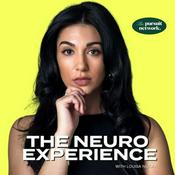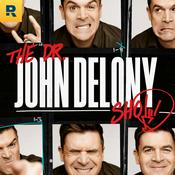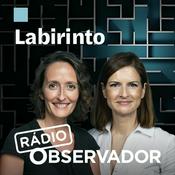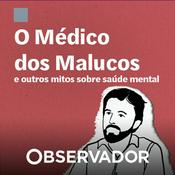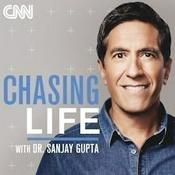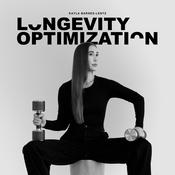284 episódios
- When Blake's dad died by suicide, it came as a complete shock. Overwhelming grief, combined with confusion and guilt — it uprooted his life. The loss made him rethink his own mental health, and eventually, channel that into the community — fundraising and taking on three world records.
Today, we're talking about suicide bereavement; how it can affect family and friends, its long lasting impacts on mental health, and how to support someone going through the experience. It can be really tricky to talk about suicide, so how do you tackle talking to kids about this kind of loss?
Also, why are rates of suicide not going down, despite millions spent on prevention? And why do some people experience something called post-traumatic growth while others don't?
This episode discusses suicide, grief and mental illness in depth. Please take care while listening.
Guests:
Blake JohnstonFormer pro surferSurf CoachMental Health advocateAuthor, Swellbeing
Associate Professor Karl AndriessenPrincipal Research Fellow, Centre for Mental Health and Community WellbeingMelbourne School of Population and Global HealthUniversity of Melbourne
Tanja HirvonenClinical psychologistChief Executive Officer, ThirriliBoard Director, Australian Indigenous Psychologists AssociationBoard Director, Black Dog Institute
Credits:
Presenter/producer: Sana Qadar
Producer: Rose Kerr
Senior producer: James Bullen
Sound engineer: Harvey O'Sullivan
Thanks to freesound.org users tim.kahn and juskiddink
Support and resources:
Lifeline 13 11 14
Thirrili 1800 805 801
13 YARN 13 92 76
Beyond Blue 1300 22 4636
More information:
Coping With A Parent's Suicide
Alarming rise in Aboriginal and Torres Strait Islander suicide rates
A better way: suicide prevention in First Nations communities
You can catch up on more episodes of the All in the Mind podcast with journalist and presenter Sana Qadar, exploring the psychology of topics like stress, memory, communication and relationships on ABC Listen or wherever you get your podcasts. - Simon considers himself a calm, conscientious, conflict-avoidant type of person. But in the car, his personality flips — and it scares him.
It can be hard to admit, but many of us do experience road rage.
So what is it about being in the driver's seat that makes us so quick to anger? And does the type of car a person drives have anything to do with their propensity for aggression?
Today, we're talking about road rage; owning up to times we've lost our temper and finding out what we can do about it.
You can catch up on more episodes of the All in the Mind podcast with journalist and presenter Sana Qadar, exploring the psychology of topics like stress, memory, communication and relationships on the ABC Listen app (Australia) or wherever you get your podcasts.
Guests:
Dr Amanda StephensSenior Research Fellow,Monash University Accident Research Centre
SimonAll in the Mind listener and business owner
Credits:
Presenter/producer: Sana Qadar
Senior producer: James Bullen
Producer: Rose Kerr
Sound engineer: Harvey O'Sullivan
More information:
Estimated car cost as a predictor of driver yielding behaviors for pedestrians
Higher social class predicts increased unethical behavior
The fast and the furious: Research shows that owners of high-status cars are on a collision course with traffic - Over years of practice, clinical psychologist Dr Mary Anderson started to notice a peculiar pattern across her many clients.
Despite being impressive high achievers on the outside, inside they were struggling with burnout, imposter syndrome, anxiety and self-criticism.
So she set out to develop a guide for these high achievers. A framework to support their success ... without sacrificing their mental health.
You can catch up on more episodes of the All in the Mind podcast with journalist and presenter Sana Qadar, exploring the psychology of topics like stress, memory, communication and relationships on the ABC Listen app (Australia) or wherever you get your podcasts.
This episode first aired in May 2025.
Guests:
Dr Mary AndersonClinical Psychologist; Author, The Happy High Achiever
Credits:
Presenter/Producer: Sana Qadar
Producer: Rose Kerr
Senior Producer: James Bullen
Sound Engineer: Tegan Nicholls
You can find the transcript for this episode on its original webpage here.
Extra Information:
The Happy High Achiever - Pan Macmillan Australia - Many of us have felt self loathing at some point in our lives — maybe when you've failed at an important task at work, or lost an important relationship.
But some people hate themselves all the time — their inner monologue is a constant drumbeat of self-criticism and self-loathing.
Where does this kind of all-encompassing self-hate come from? And is there a way to unlearn it?
We speak to psychiatrist Dr Blaise Aguirre, author of I Hate Myself: Overcome Self-Loathing and Realize Why You're Wrong About You.
This episode discusses the topic of suicide - please take care while listening.
This episode first aired in February 2025.
Guest:
Dr Blaise AguirreChild and adolescent psychiatristAssistant Professor of Psychiatry, Harvard Medical SchoolAuthor, I Hate Myself: Overcome Self-Loathing and Realize Why You're Wrong About You
Credits:
Presenter/producer: Sana Qadar
Senior producer: James Bullen
Producer: Rose Kerr
Sound engineer: Isabella Tropiano
Thanks to Freesound.org users 7by7, qubodup, laft2k, andre.nascimento
To find the transcript for this episode, head to it's original webpage.
Resources:
Lifeline Australia
1800RESPECT
You can catch up on more episodes of the All in the Mind podcast with journalist and presenter Sana Qadar, exploring the psychology of topics like stress, memory, communication and relationships on the ABC Listen app (Australia) or wherever you get your podcasts. - Be honest, how many times have you checked your notifications in the last hour? Or opened a new, totally unrelated tab? Or stopped what you're doing even though you really need to do it?
Distractions are everywhere. And whether they're self-imposed or coming from our environment, it can be hard to focus.
Today, we explore the ramifications of our rapidly shrinking attention spans, debunk some myths about focus, and discuss the art of taking a break.
You can catch up on more episodes of the All in the Mind podcast with journalist and presenter Sana Qadar, exploring the psychology of topics like stress, memory, communication and relationships on the ABC Listen app (Australia) or wherever you get your podcasts.
This episode first aired in March 2025.
Guests:
Dr Emma Fitzgerald Clinical Neuropsychologist
SebEmma's son and distracted teenager
Gloria Mark, PhDChancellor's Professor Emerita, University of California, IrvineAuthor, Attention Span
Credits:
Presenter/producer: Sana Qadar
Senior producer: James Bullen
Producer: Rose Kerr
Sound engineer: Bella Tropiano
To find the transcript for this episode, head to its original webpage.
Extra info:
Gloria's The Future of Attention substack
Smartphones in the nursery: Parental smartphone use and parental sensitivity and responsiveness within parent–child interaction in early childhood (0–5 years): A scoping review
Ditching your smartphone won't stop you being distracted, study finds
Mais podcasts de Saúde e fitness
Podcasts em tendência em Saúde e fitness
Sobre All In The Mind
All In The Mind is ABC RN's weekly podcast looking into the mental universe, the mind, brain and behaviour — everything from addiction to artificial intelligence.
Sítio Web de podcastOuve All In The Mind, Voz de Cama e muitos outros podcasts de todo o mundo com a aplicação radio.pt

Obtenha a aplicação gratuita radio.pt
- Guardar rádios e podcasts favoritos
- Transmissão via Wi-Fi ou Bluetooth
- Carplay & Android Audo compatìvel
- E ainda mais funções
Obtenha a aplicação gratuita radio.pt
- Guardar rádios e podcasts favoritos
- Transmissão via Wi-Fi ou Bluetooth
- Carplay & Android Audo compatìvel
- E ainda mais funções


All In The Mind
Leia o código,
descarregue a aplicação,
ouça.
descarregue a aplicação,
ouça.




















